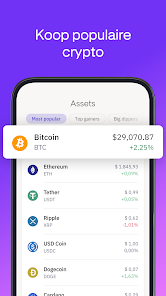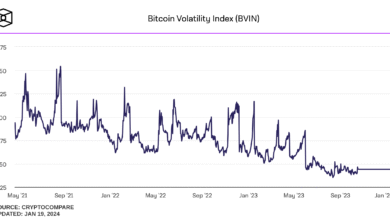Google Play Crypto Apps: New Rules You Need to Know

Google Play crypto apps are at the forefront of a rapid evolution in the digital financial landscape. Recently, Google instituted a significant policy update, stipulating that crypto exchange apps and custodial wallets must secure appropriate financial licenses to operate in numerous jurisdictions. This decision impacts developers worldwide, especially in key markets like the U.S., U.K., and across Europe, where compliance with crypto regulations is becoming increasingly stringent. Developers must now navigate these regulations or risk removal from the app store, highlighting the critical importance of understanding Google Play’s latest requirements. As the app ecosystem shifts, these changes may reshape the future of how consumers interact with cryptocurrencies and financial services.
The recent shifts in app policies under Google Play signal a transformative phase for digital currency applications. This new landscape encompasses not just crypto exchange platforms but also includes various digital wallet solutions that require regulatory oversight. As developers grapple with these mandates, such as obtaining financial licenses for apps and adhering to anti-money laundering regulations, the stakes have never been higher. The reaction from the industry underscores the complexities involved in integrating decentralized finance with traditional financial systems, a balancing act that will define the future of digital transactions. Overall, these developments mark a pivotal moment for fintech, pushing the boundaries of how cryptocurrency can be managed, used, and accessed.
Understanding Google Play’s Policy Update
Google Play’s recent policy update mandates that all crypto exchange apps and custodial wallets obtain applicable financial licenses in order to maintain their presence on the platform. This policy affects a broad range of jurisdictions, including significant markets like the United States and the European Union. Developers must now navigate complex regulatory landscapes to ensure compliance with local licensing requirements. Failure to comply could result in apps being delisted, directly impacting access to users across the Google Play community.
This development not only emphasizes the growing intersection of technology and finance but also highlights the necessity for developers to align with existing crypto regulations. The ramifications for crypto development are profound, as failure to address these licensing imperatives creates barriers for many projects. As the landscape continues to evolve, understanding the implications of Google’s policies becomes essential for any app in the cryptocurrency space.
The Impact of Financial Licenses on Crypto Apps
Financial licenses are central to the operation of custodial wallets and crypto exchange applications on the Google Play Store. In the U.S., compliance with the Financial Crimes Enforcement Network (FinCEN) regulations is crucial, requiring apps to register as Money Services Businesses (MSBs). This involves a commitment to stringent Anti-Money Laundering (AML) and Know Your Customer (KYC) protocols that were once a burden mostly borne by traditional banks. As crypto apps become more mainstream, embracing these regulatory requirements will allow them to operate within legal parameters.
In regions like the European Union, the Markets in Crypto-Assets (MiCA) regulation introduces a robust framework that crypto applications must adhere to. By obtaining a license as a Crypto-Asset Service Provider (CASP), apps position themselves as transparent platforms. This not only builds user trust but also fosters a compliant ecosystem that can drive the adoption of digital assets. For developers, adapting to these regulations might require significant investment and restructuring of their operational practices.
Navigating the Regulatory Landscape
The regulatory landscape surrounding crypto apps is notoriously complex and varies significantly from one jurisdiction to another. In the U.K., for instance, custodial wallet and exchange providers must register with the Financial Conduct Authority (FCA) to function legally. This illustrates the necessity for developers to conduct thorough research on financial regulations applicable to each target market. Understanding these nuances is not just beneficial; it’s essential for survival in the competitive app marketplace.
Moreover, the recent Google Play policy update underscores the growing importance of regulatory compliance in the cryptocurrency space. As various countries continue to tighten their grip on digital assets, staying informed about these evolving regulations becomes increasingly critical. Developers must be proactive in their approach to compliance, which involves not only securing necessary licenses but also adapting to ongoing legal changes to maintain operational continuity.
Self-Custody Wallets and Regulatory Exclusion
After initial concerns, clarity around Google’s policy indicates that self-custody wallets are not subject to the same licensing requirements as custodial services. This distinction is crucial for developers and users alike, as it reinforces the autonomy provided by decentralized finance (DeFi). Non-custodial wallets allow users to control their cryptocurrencies without relying on third-party providers, thus sidestepping many regulatory hurdles.
Google’s commitment to excluding non-custodial wallets from the purview of its new policies signals an understanding of the importance of decentralized tools in the crypto ecosystem. This amendment not only respects user choice but also bolsters the spirit of innovation within the crypto community. Developers can continue to create and distribute self-custody wallets with confidence, knowing that these tools are protected under the updated guidelines.
Licensing and Global Jurisdiction Challenges
The requirement for financial licenses introduces a multilayered challenge for custodial wallet and crypto exchange developers, especially those operating across multiple jurisdictions. Each region has its own set of compliance requirements that can be time-consuming and costly. Developers must carefully assess which markets they wish to enter and align their business practices accordingly to avoid penalties or delistings from platforms like Google Play.
This challenge is further complicated by the rapid evolution of financial regulations concerning crypto assets. As new laws are drafted and existing ones evolve, maintaining compliance becomes a continuous effort. Developers will need to invest in legal expertise to navigate these intricacies and ensure that their applications not only comply with current regulations but are also adaptable to future changes.
Building Trust in Custodial Crypto Platforms
Trust will be a significant determinant of success for custodial wallet and exchange providers in the wake of Google’s new requirements. By obtaining financial licenses and adhering to local regulations, developers can enhance their credibility and build trust with their user base. Transparency in operations, especially regarding adherence to AML and KYC protocols, is crucial for fostering confidence among users who might be wary of custodial solutions.
Moreover, the establishment of trust can serve as a competitive advantage in the crowded market of crypto applications. By demonstrating compliance and a commitment to financial integrity, custodial wallets and exchanges can differentiate themselves from less compliant solutions. This is particularly relevant as consumers become increasingly discerning about where they store and trade their digital assets.
Adapting to Google Play’s Compliance Requirements
Developing strategies to comply with Google Play’s requirements will be an integral part of any crypto app’s business model moving forward. This means that developers must not only become familiar with the regulations but also implement systems that ensure ongoing compliance. Ensuring that the app’s technology aligns with regulatory standards will be a significant step towards maintaining market presence. This may involve regular audits, updates to privacy policies, and enhancing data security measures.
Additionally, collaboration with legal experts who specialize in crypto regulations will be vital. Having a support system in place will not only help in navigating the complexities of compliance but also facilitate better strategic planning for future expansions. Successful navigation of these requirements can mean the difference between a thriving app and one that is left behind in a rapidly evolving digital marketplace.
Conclusion: Future of Crypto Apps on Google Play
The future of crypto apps on the Google Play Store will largely hinge on developers’ ability to adapt to these new requirements. As Google sets clear expectations regarding licensing and regulatory compliance, the landscape for crypto applications will likely become more structured and professionalized. While this may present challenges, it also opens the door for legitimate players in the market to thrive.
Ultimately, the emphasis on securing financial licenses will serve to legitimize the crypto industry, fostering relationships with traditional financial institutions and, importantly, boosting consumer confidence. As developers embrace compliance, the entire ecosystem stands to benefit, paving the way for a more mature and responsible crypto market.
Frequently Asked Questions
What are the new Google Play policies for crypto apps?
Google Play has introduced stringent new policies stating that crypto exchange apps and custodial wallets must acquire relevant financial licenses to remain listed in designated jurisdictions. This impacts over 15 major markets, including the U.S., EU, and U.K.
Do custodial wallet apps need financial licenses under Google Play’s rules?
Yes, custodial wallet apps must secure applicable financial licenses, such as registering with FinCEN as a Money Services Business (MSB) in the U.S., to comply with Google Play’s updated policies.
What implications do Google Play’s crypto app policies have for developers?
Developers of crypto exchange apps and custodial wallets face a compliance burden under Google Play’s new policies, as they must adhere to financial regulations and licensing requirements specific to each targeted jurisdiction.
Are non-custodial wallets affected by Google Play’s new crypto app policies?
No, Google Play clarified that non-custodial wallets are excluded from the licensing requirements under its new policies. Only custodial services that manage users’ funds need to comply.
How does Google Play’s update affect crypto regulations in the EU and U.K.?
In the EU, crypto exchange apps must obtain a Crypto-Asset Service Provider (CASP) license under the MiCA regime. In the U.K., providers need to register with the Financial Conduct Authority (FCA) as part of complying with Google Play’s policies.
What requirements must custodial wallet apps meet to comply with Google Play’s policies?
Custodial wallet apps must meet rigorous standards including AML and KYC regulations and secure financial licenses specific to the jurisdictions they operate in, such as state-level Money Transmitter Licenses and federal registrations.
What actions can developers take to remain compliant with Google Play’s crypto app policies?
Developers should assess their operational jurisdictions, obtain necessary financial licenses, and ensure compliance with local crypto regulations to maintain their presence on Google Play.
What is the significance of Google Play’s new crypto policy update for users?
For users, Google Play’s updated policies ensure that custodial wallets and crypto exchange apps are operating legally and securely, reducing risks associated with unregulated financial services.
Can crypto exchange apps target markets where they don’t need licensing under Google Play’s new rules?
Yes, Google Play permits crypto exchange apps to target markets that do not have regulatory licensing requirements, allowing for broader access without the need to comply with stringent financial laws.
How can developers navigate the licensing process for Google Play crypto apps?
Developers can seek guidance from legal experts specializing in compliance for crypto exchange apps and custodial wallets. This includes assistance with MSB registration, state licensing, and strategic planning for decentralized offerings.
| Key Point | Details |
|---|---|
| New Licensing Requirements | Crypto exchange apps and custodial wallets must obtain financial licenses to operate in 15 major markets. |
| Affected Markets | Includes the US, EU, UK, Canada, Japan, and more. |
| US Regulations | Must register with FinCEN or operate under a banking entity. |
| EU Regulations | Must secure a license as a Crypto-Asset Service Provider under MiCA. |
| UK Regulations | Providers must register with the Financial Conduct Authority (FCA). |
| Non-Custodial Wallets | Exempt from new licensing rules, clarifies Google’s position. |
| Industry Reaction | Backlash led to clarification on non-custodial wallets being excluded. |
| Compliance Support | Firms can seek guidance on compliance with new regulations. |
Summary
Google Play crypto apps must now comply with new regulations that require financial licensing for custodial wallets and exchanges in key markets. This policy shift emphasizes the importance of legal compliance for developers operating in the crypto space, particularly in jurisdictions with stringent regulatory frameworks. It also highlights a growing focus on user protection and adherence to financial laws, paving the way for a more secure and accountable crypto app ecosystem.




